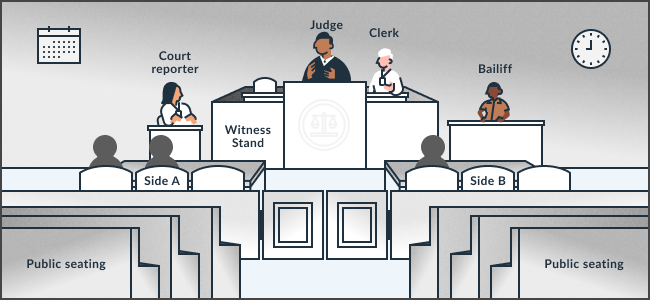4. Prepare for your civil trial
You should be preparing for trial from the start. This will help focus your efforts on what needs to be done to prove your case or defense. Solid preparation will help you with the settlement because you will be better able to evaluate the strengths and weaknesses of each side and avoid surprises.
You may want to consult with an attorney about preparing for and trying your case so you can make sure you are on the right track and avoid surprises and costly mistakes.


